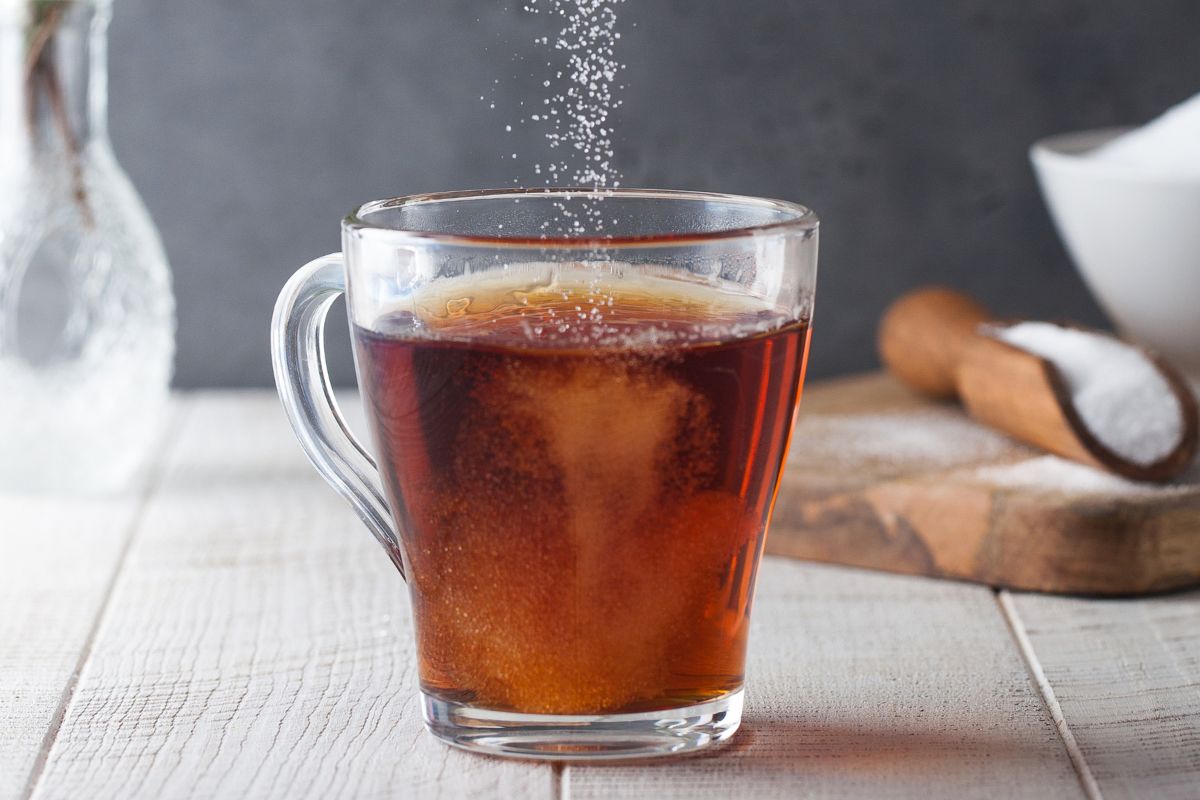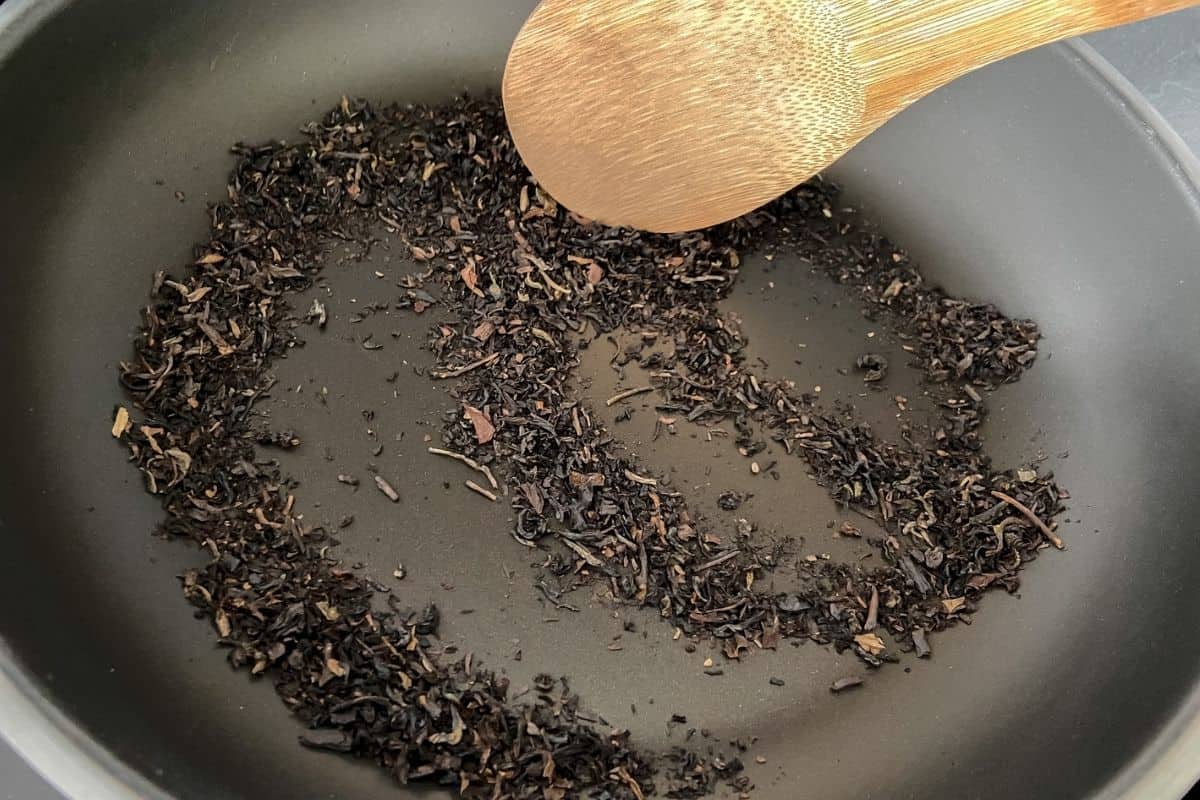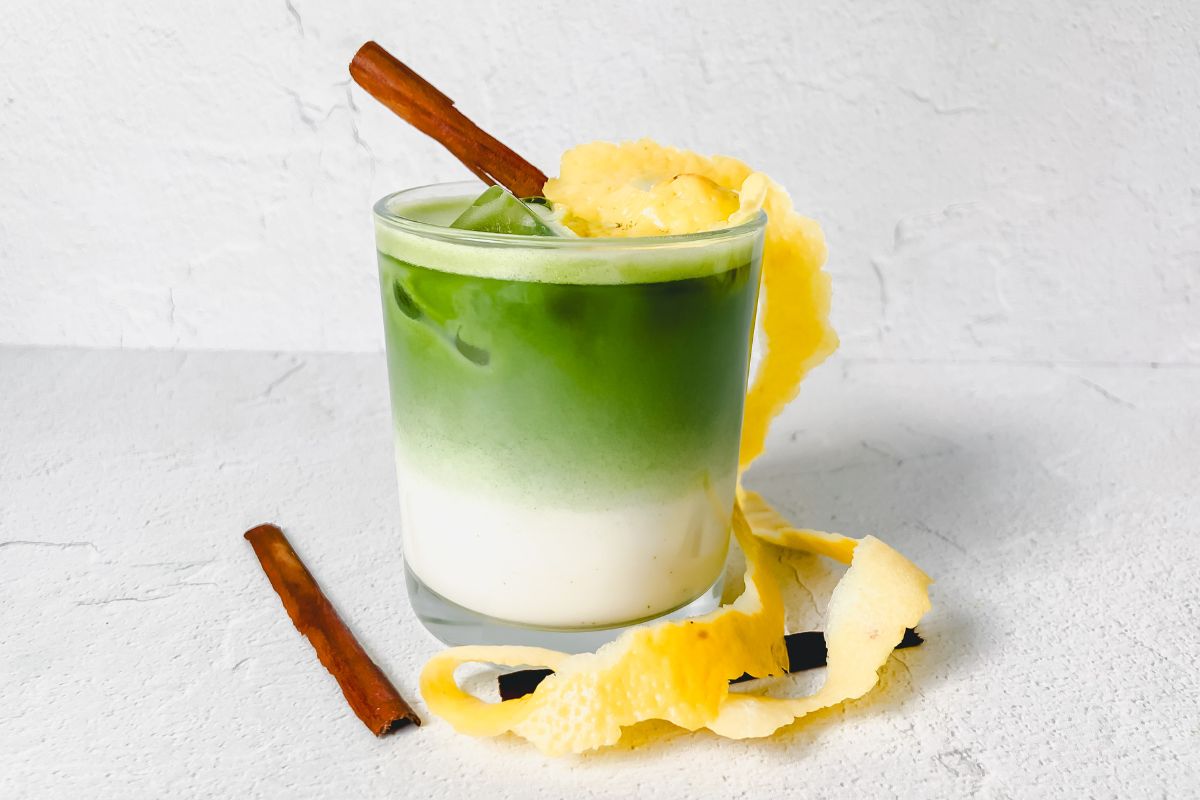Authentic Chai Masala Recipe
How to make chai masala following the recipe of my Indian neighbor

One of my neighbors comes from India, and she cooks so well that almost every day, the mouth-watering aroma of her cooking makes all the neighbors in the hallway hungry.
One day I asked her if she could teach me how to make chai and she invited me to her place to learn from her and her sister-in-law.
I had already had chai before, but the aroma of her chai is the best I’ve ever tried!
Since then, I follow her recipe every time I want to make traditional chai.
In this post I’ll share the tricks I learned from her.
I wish you could smell that aroma just by looking at the pictures! (which by the way, were taken at hers)
This post may contain affiliate links. This means, if you make a purchase through one of these links, I may earn an affiliate commission at no extra cost to you. Here you can read my affiliate disclosure.
Interesting facts about chai (according to someone from India)

I was no stranger to chai as I went to learn how to make it from my Indian neighbor.
For example, I already knew that:
- chai is spiced tea
- the most commonly used spices to make chai are cardamom, cinnamon, cloves, nutmeg and ginger
- chai is made by simmering the spices and tea in milk
- the correct way to call it is “chai”, or “masala chai”, but not “chai tea”, because the word “chai” already means “tea”
In fact, before learning this recipe from my neighbor, I had already posted some chai related recipes that I love:
But still, there were a couple of interesting things I didn’t know about chai:
- Since it’s supposed to warm you, you should drink it hot:
People in India (at least from what I see and hear from my neighbor and her family) consider that food is one of the best medicines, so they take great care about what kind of nourishment they put into their bodies.
Chai has ingredients that warm the body (which is considered good for health in many Asian cultures), so both my neighbor and her sister couldn’t believe people abroad buy iced chai.
If it’s not hot, it isn’t authentic chai for them! - Preparing it (and filling the kitchen with good scent) is part of the ritual:
According to my neighbor, good food is supposed to smell.
The more intense, the better.
That’s why it was such a great compliment for her when I told her I loved how the hallway smells since they moved in!
So, when making chai, it’s important to be able to enjoy the aromas of the spices during the process.
One of the ways to get this is by roasting the spices before simmering them.
How to make chai – my Indian neighbor’s recipe
As with many traditional recipes, it seems that every Indian household has its own recipe and tricks for making chai.
I can relate to this, as the same is true for gazpacho (which is original to my birth place).
Therefore, it’s possible that not everyone in India makes chai the same way as my neighbor.
Nevertheless, I was fascinated to learn how she makes it, so here I’d like to share her way of doing it:
ingredients
Instructions
Time needed: 25 minutes
How to make chai masala
- Roast spices
Place the cinnamon, cardamom pods, cloves in a pan.
Cut nutmeg into small pieces with a knife.
Roast these spices at medium heat.
- Roughly grind the spices
When the spices begin to release their aroma (the kitchen smells so good!), turn the heat off and roughly grind the spices.
You should get small pieces that can easily release their flavor while cooking, but not so small that they are powdery (that would make it difficult to strain before drinking).
- Cook spices
Put the spices and the water in a small pot.
Add grated ginger.
Bring to a boil and let it simmer at medium heat for around 10 minutes.
You can also grind some pepper with a pepper mill over this mixture.
- Add tea
Then add the black tea and cook for another 5 minutes.

- Add milk
After this time, add the milk and cook for another 5 minutes.
Sweeten to taste (usually with white sugar or brown sugar).
- Serve
Strain into the mugs and enjoy your aromatic tea while still hot.

Tips
- Make sure you add the milk once the ginger has cooked: adding uncooked ginger to the milk could make it curdle.
- Some recipes online use whole pepper corns; my neighbor prefers the taste that comes when adding roughly ground pepper (freshly ground with a pepper mill).
Common Questions About Chai
Yes. According to my Indian neighbors, the black tea free version is called Herbal Chai.
I had read that when you make chai skipping the black tea, it’s called yogi tea.
My neighbors had never heard the name before, but they explained me that the Iskcon followers aren’t allowed to have tea, so they make the recipe without the black tea.
Most strong, robust black teas work. Usually, chai it’s made with Assam or Darjeeling tea.
While it’s difficult to measure the exact amount of caffeine in tea, chai is considered to have more caffeine than regularly steeped black tea, because it’s simmered for a long time.

Tradicional Chai Recipe
Equipment
- Pan
- knife (To cut nutmeg)
- Grinder
- Small saucepan
- Strainer
Ingredients
Instructions
- Cut the nutmeg into slices and then, into small pieces.Place with the cinnamon, cardamom pieces and cloves in a pan and roast over medium heat.

- Once the spices are roasted (you begin to notice a their delightful aroma), remove from heat and roughly grind them.

- Put the coarsely ground spices in water, and add grated ginger.Bring to a boil and let simmer for around 10 minutes.You can also add a pinch of ground pepper.

- Then add the tea and continue simmering for another 5 minutes.

- Add the milk and continue simmering for further 5 minutes.Sweeten to taste.

- Strain your mixture and serve.Enjoy while warm!

Nutrition
I hope you enjoy this masala chai as much as I do!
After trying this fragrant chai, I felt motivated to create some recipes that incorporate its flavors.
While they aren’t the traditional thing, you will love them if you like chai!:











I find the Indian culture absolutely fascinating, and learning about their herbal chai has been particularly intriguing. I currently have Yogi tea in my house, but I never realized it was the same as herbal chai until now! Thank you for this wonderful post!